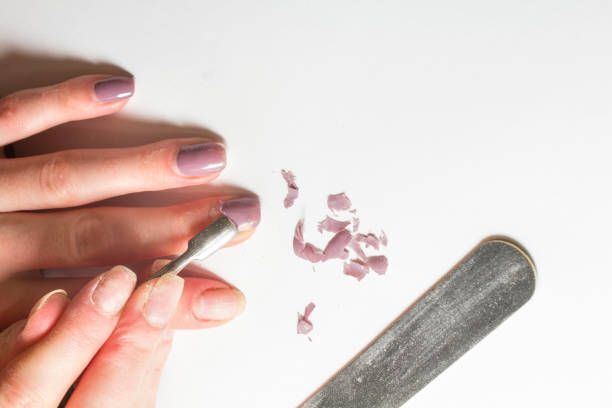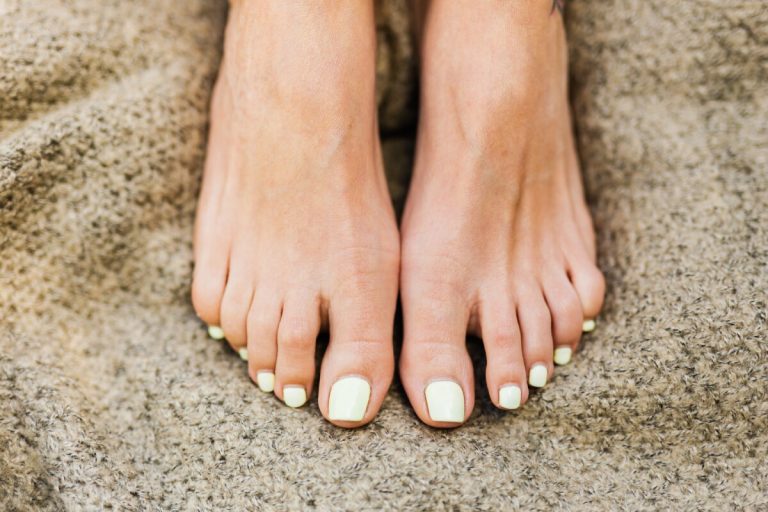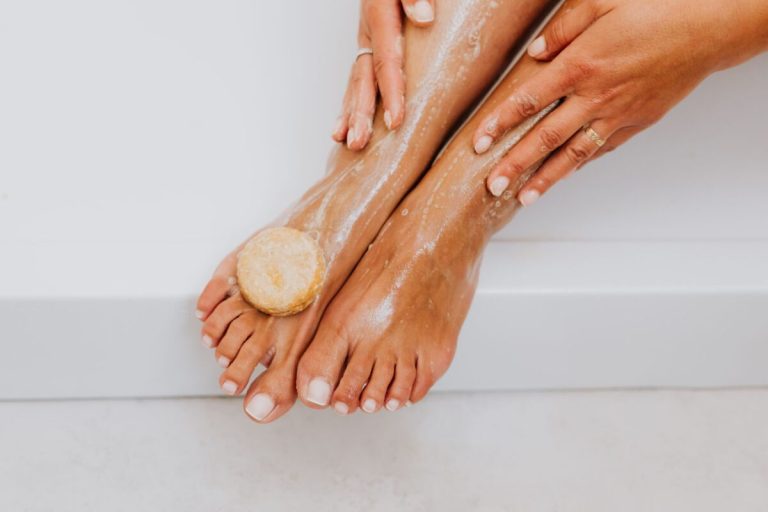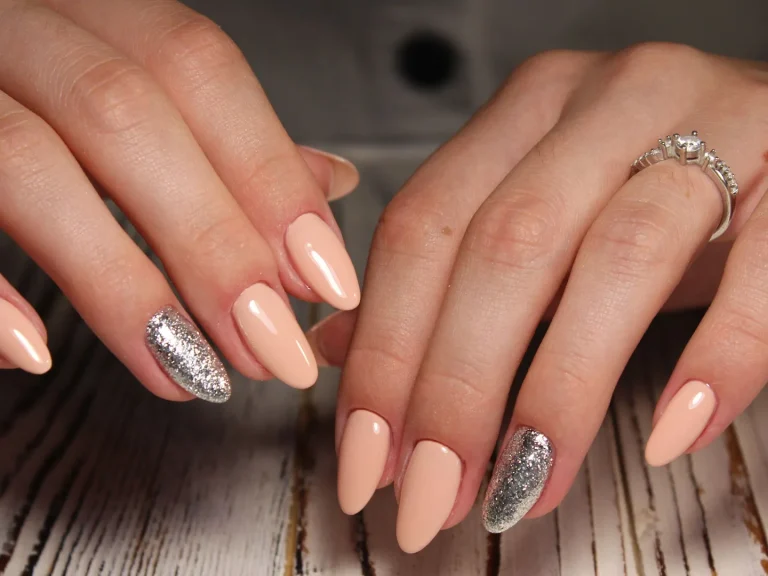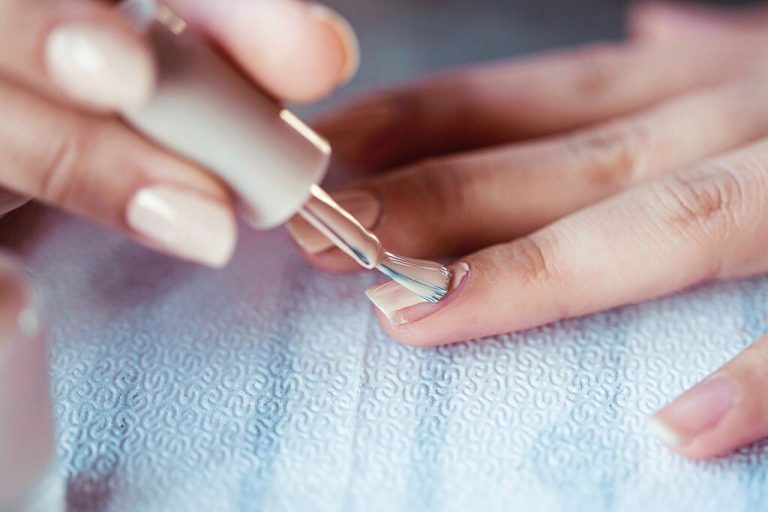Why Are My Nails Soft and Bendy?
If you’ve noticed your nails becoming increasingly soft and bendy lately, you’re not alone. Many people struggle with brittle, peeling nails that simply won’t grow. While soft and bendy nails can sometimes be genetic, there are also several potential causes that may be weakening your nails.
In this article, we’ll explore the various reasons nails can become soft and bendy, from chemical exposure to acrylics and nutrient deficiencies. We’ll also discuss ways to strengthen soft nails, including protective gloves, supplements, hydration, and more. By understanding what leads to brittle nails, you can take steps to get your nails back to a healthy state.
Common Causes of Soft and Bendy Nails
Contents
Soft and bendy nails have a variety of possible causes. Here are some of the most common reasons nails become thin and weak:
Exposure to Chemicals
One of the top reasons for brittle, peeling nails is overexposure to harsh chemicals. The ingredients in many cleaning products can cause bendy nails if you don’t take proper precautions. Chemicals like bleach, ammonia, and acetone break down nail proteins, leading to weakness and peeling.
Those whose jobs involve frequent use of industrial cleaners or other chemicals are especially prone to this issue. But even cleaning your home regularly without gloves can lead to brittle nails over time. The solution? Wear protective gloves whenever working with chemical cleaners or other products with harsh ingredients. Opt for thick rubber gloves that cover most of your forearms if possible.
Acrylic Nails or Gel Manicures
Acrylic nails or gel manicure extensions are another very common culprit behind soft and bendy natural nails. While acrylics and gels allow for long, decorative nails, the process can significantly damage your natural nails underneath.
The application and removal processes involve a lot of filing and soaking that slowly wear down the nail plate. Most people find their natural nails are left thin and brittle for weeks or even months after stopping acrylic or gel manicures. If your nails are bendy, consider taking a break from acrylics and gels to allow your natural nails time to heal.
Genetics
For some people, soft bendy nails are simply genetic. Those whose parents also struggled with brittle nails are more likely to as well. This comes down to the nail matrix, which is where new nail cells are formed.
A smaller nail matrix means your body produces thinner nails that are more prone to bending and breaking. With a larger matrix, you may be able to grow thicker, stronger nails. While you can’t change genetics, you can focus on nail strengthening treatments if brittle nails run in your family.
Working Hands in Wet Conditions
Do you often have your hands in water or wear rubber gloves for long periods? This type of wet work environment can also cause nails to become soft and brittle over time. Constant moisture exposure allows nails to absorb excess water, causing expansion and increased fragility when they dry.
Those who frequently wash dishes, clean with wet hands, or immerse hands for their job tend to see peeling and brittle nails as a result. Try to reduce time with wet hands and wear cotton-lined gloves when possible.
Some Health Conditions
In some cases, bendy nails may be a sign of an underlying health condition. For example, those with thyroid disorders or anemia are more prone to brittle, peeling nails. When you have decreased blood flow to the fingers and nails, it affects growth and can cause brittleness.
Similarly, conditions that cause malabsorption like celiac disease can lead to nutrient deficiencies that weaken nails. If you suspect an untreated condition may be the cause of your bendy nails, focus on improving health first before aesthetics. Get necessary testing and address the underlying issue.
Aging
As we age, nails naturally become more brittle and susceptible to bending. That’s because aging leads to decreased keratin and lipids in the nail plate, along with lower cholesterol levels. Since cholesterol helps keep nails flexible, reduced levels with age causes increased brittleness.
While some amount of bendy nails comes naturally with aging, don’t assume it’s inevitable. You can still take steps to care for your nails and keep them strong as you get older. Just adjust your expectations and stick with a consistent nail care routine.
Nutrient Deficiencies
Deficiencies in certain vitamins and minerals are another potential cause of weak bendy nails. For instance, iron deficiency or anemia can manifest with concave, brittle nails. Low levels of zinc, biotin, calcium, and vitamin C may also contribute to nail brittleness.
However, don’t attempt to self-diagnose a nutrient deficiency based on nails alone. Have your doctor check your vitamin and mineral levels through a blood test if concerned. Then you can safely address any deficiencies through diet changes or supplements under medical supervision.
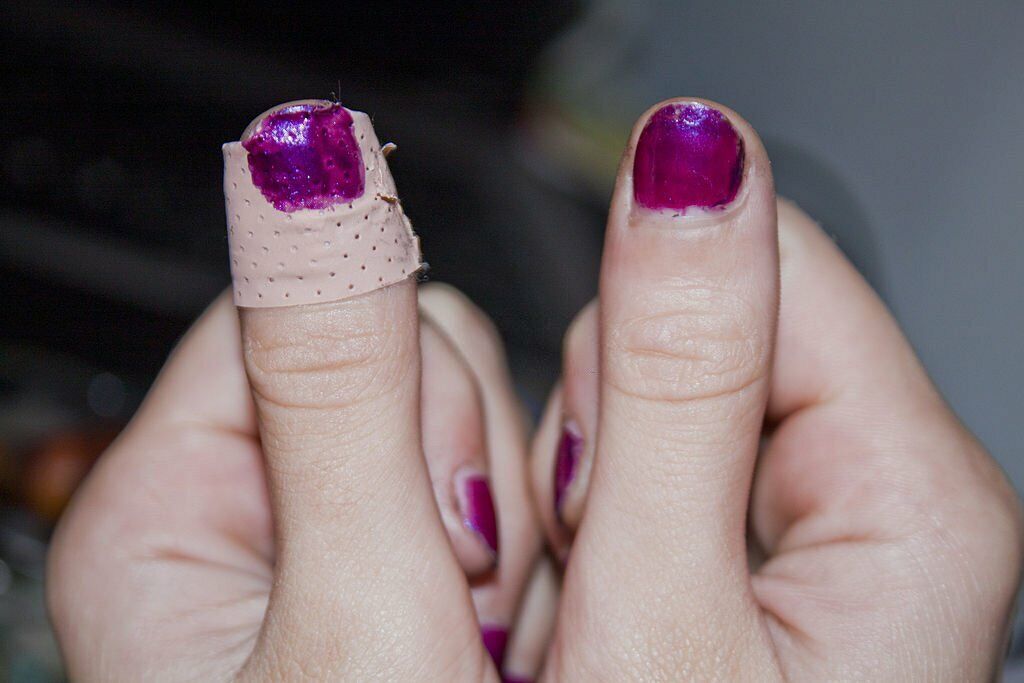
How to Strengthen Soft Bendy Nails
If your nails are starting to bend and feel weak, don’t panic. There are many ways you can help strengthen soft thin nails back to a healthy state. Here are tips for helping fragile brittle nails become strong again:
Wear Gloves for Wet and Chemical Exposure
One of the first things to address is limiting exposure to water and chemicals, the two biggest environmental causes of brittle nails. If you regularly get your hands wet or use harsh cleaners, wear waterproof gloves whenever possible.
Opt for heavy duty rubber gloves that go several inches up your forearms if you’ll be immersed in water or using concentrated cleaners. Cotton-lined gloves help reduce moisture when doing casual wet work. Having gloves readily available makes it easier to use them consistently.
Take a Break from Acrylics and Gels
If you suspect acrylics or gels are the culprit, it’s best to take a break and let your natural nails recover. Avoid getting enhancements again until nails feel strong. Use regular nail polish or go natural while you focus on strengthening treatments. Going without acrylics or gels for 2-3 months helps restore thickness and durability.
Try Nail Supplements with Biotin
Biotin is a B vitamin that supports keratin production for healthy nails. Taking a biotin supplement can help strengthen soft thin nails and reduce brittleness over time. Most dermatologists recommend 2,500-5,000 mcg of biotin per day for nail health.
Look for capsules or gummies with biotin as one of the primary ingredients. Take consistently alongside food for 2-3 months to see improved thickness and hardness. Research shows biotin significantly increases nail plate thickness.
Check for Nutrient Deficiencies
If you suspect nutrient deficiencies may be causing your bendy nails, get tested by your doctor. They can check for low levels of iron, zinc, folate, and other vitamins through a blood draw. This allows you to identify any specific deficiencies contributing to weak nails.
Address any deficiencies found through diet changes, specific supplements, or other treatments as recommended. Common approaches may include iron or vitamin C supplements. But work with your doctor to ensure you correct deficiencies safely.
Use Natural Nail Strengthening Treatments
Look for nail treatments made with nourishing ingredients to help fortify soft thin nails. Avoid products with formaldehyde, toluene, and other harsh chemicals. These can further dry and damage fragile nails.
Instead, search for natural, hydrating nail products to help strengthen nails. For example, the Dana Stern Nail Renewal System uses jojoba, avocado oil, and vitamins to improve nail health. Using treatments like this help get thin brittle nails back to a stronger state.
Hydrate Nails, Cuticles, and Hands
One of the keys to healthy, strong nails is proper hydration. Use a daily cuticle oil to nourish the nail plate and surrounding skin. Apply it whenever you wash hands or do nails to keep cuticles plump with moisture. Petroleum-based oils like olive, jojoba, and vitamin E work best.
You can also use a rich hand cream after washing and before bed to lock in moisture. Keep one by sinks to remind you to moisturize frequently. Proper hydration helps strengthen nails and reduce brittleness over time.
Always Use a Base Coat
Whenever you polish nails, start by applying a nutrient-rich base coat to nourish and protect. Base coats reinforce soft thin nails and reduce chipping of polish. Look for one with peptides, keratin, calcium, and other vitamins to strengthen as it conditions.
Using a base coat also prevents polish from staining nails. Try Sundays No. 03 Base Coat if you have very bendy or discolored nails. It moisturizes with aloe vera and pea extract while providing a clean base for polish.
Are Bendy Nails Necessarily Unhealthy?
Seeing those bendy nails can certainly be alarming, especially if your nails are normally strong. But keep in mind that some people just genetically have thinner, more flexible nails. Bendy nails don’t always equal unhealthy nails.
If your nails have always been on the thinner side, it may just be your natural nail type. As long as they’re not overly dry or brittle, bendy nails are not necessarily problematic. You can still focus on strengthening treatments to get them feeling their best. But thin nails don’t always mean something is wrong with your body or health.
On the other hand, sudden development of very soft bendy nails in someone who normally has hard nails can be a red flag. Dramatic, unexplained changes in nail strength or thickness can indicate:
- Chemical damage from products
- Nutrient deficiency like iron or zinc loss
- Thyroid disorders
- Harsh acrylic or gel damage
In those cases, brittle bendy nails likely do signal an underlying issue. See a doctor to identify and address the cause, whether it’s hypothyroidism, vitamin deficiency, or simply gel manicure overuse. Don’t ignore major shifts in nail health.
Do Bendy Nails Mean You’re Deficient in Something?
Bendy, peeling nails can sometimes indicate a vitamin or mineral deficiency. For example, iron deficiency frequently causes koilonychia, where nails become thin and spoon-shaped. Low vitamin C intake may also contribute to nail brittleness.
However, deficiency isn’t necessarily the cause for everyone with bendy nails. Genetics, chemical damage, and acrylics can all lead to thin nails with no deficiency present. Don’t attempt to diagnose yourself based on nail appearance alone.
To determine if deficiency is contributing to your bendy nails, get bloodwork done by your doctor. They can test levels of iron, folate, vitamin C, zinc, and other common nail nutrients. This takes the guessing work out and allows you to identify and target any specific deficiencies present.
Again, soft nails alone don’t definitively mean you have a vitamin deficiency. But a blood panel helps uncover any low levels that may be a factor behind weak peeling nails. Address any deficiencies found through diet, supplementation, and your doctor’s guidance.
Takeaways for Strengthening Soft Bendy Nails
In summary, here are some of the top takeaways for dealing with soft, brittle nails that bend easily:
- There are many potential causes of bendy nails, including chemical damage, acrylics, genetics, and nutrient deficiency. Identify and limit triggers.
- Protect your hands and nails by wearing gloves for wet work and chemical exposure. This prevents moisture and ingredients from causing damage.
- Take a break from damaging acrylics and gels to allow nails to heal. Use nail treatments with nourishing ingredients to help strengthen nails back to health.
- Ensure you get enough biotin, iron, zinc and other nutrients related to nail health. Use supplements only if a blood test confirms a deficiency.
- Some people simply have thinner nail beds and genetics that make for more flexible nails. If yours have always been bendy, it may just be your natural nail type and that’s ok!
No matter the cause behind your bendy nails, a little TLC can go a long way. Avoid triggers, use protective gear, and nourish nails with moisturizing treatments. If nails change suddenly or excessively, see a doctor to address any underlying issues. With time and care, those soft thin nails can once again become strong.

Founded by Sophia Rodriguez, IGXO Cosmetics is a PETA-certified, cruelty-free, and vegan makeup brand.
